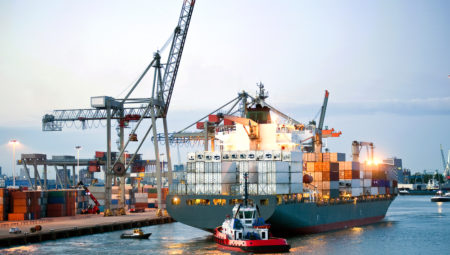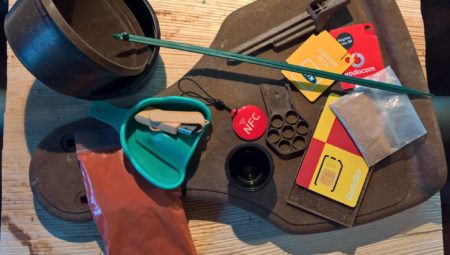‘West Brabant is having a hard time of it,’ according to Willem Sederel, chairman of Biobased Delta. ‘Just take the impact of the mass lay-off at Philip Morris. And there are more businesses experiencing hard times. I believe firmly in the manufacturing industry. But we must have fundamental renewal in order to guarantee our prosperity and welfare for the future. Innovation and the transition to a new economic foundation are highly important. That is what we stand for with Biobased Delta.’
Depth
Sederel got together with Bert Pauli, member of the Brabant Provincial Executive for Economy, Petra Koenders from the Avans University of Applied Sciences, Leon Joore from Millvision, Albert Markusse from Suiker Unie and Marc Jamin from SABIC for a good discussion with the Royal couple. Everyone was pleasantly surprised; it was not just a perfunctory exercise.
‘At this level you can quickly end up talking about general issues such as sustainability and the energy transition,’ according to Sederel. ‘But now we talked for more than twenty minutes about a very specific theme: the biobased economy. The King and Queen had been very well informed and they asked the right questions. We were really able to discuss matters in-depth and demonstrate how we are involved as government, business sector, knowledge institutes and education and show the developments we strive for. We showed how we contribute to strengthening the economy and the choices we make in doing so. We discussed our supraregional agenda for the long term, our focus on research into new applications for sugar molecules, our regional agenda in which clusters of SME businesses are able to commercialise research quickly, chances, threats, successes and challenges.’
Perseverance
Albert Markusse, CEO of Suiker Unie, looks back on the discussion with considerable pleasure. ‘We were able to present ourselves very well as a network organisation, as a collective which makes a huge combined effort to provide added value on the cutting edge of agribusiness and the chemical sector. We clarified the opportunities, but were also able to show where we stand after a decade of cooperation, and why developments sometimes proceed more slowly than anticipated.
Research and technological innovation always take a lot of time, definitely if you want to do something really new. Besides, it is the large and small businesses which ultimately have to fulfil this, with new, successful products.
Unfortunately they have had a considerable crisis to deal with in the past few years. Now that is behind us, but the low oil prices are throwing a spanner in the works. It is a matter of perseverance, but that there is a wonderful future for biobased is a certainty. At Cosun and Suiker Unie we are making great efforts in that direction, by establishing specific partnerships and targeting extra production of sugars and semi-finished products as raw material for new products. We are also concentrating on research into increasing the value of residual products and by-products in new applications. That is why we are investing heavily in a new Cosun innovation centre and pilot plant at Nieuw Prinsenland.’
Power
Leon Joore, director of Millvision, an SME company which develops recipes and prototypes based on natural fibre technology for paper, board and composites, is close to the market. ‘For us it’s about pressing ahead and being active. We have enjoyed increasing success in this, for example with our piles made from mown grass which are used for waterway bank reinforcement. What is better than a practical application to bring a theme like biobased to life? That is why I arranged a few products on the table for the Royal couple, such as a 100% biobased plant pot. The plant pot is made from fibres from capsicum and tomato stalks which are cultivated locally and from plastic from starch produced by Rodenburg Polymers in Oosterhout and Bato Plastics in Zevenbergen. The pot goes into the ground with plant and all. It is fully decomposable and is used by plant grower Boot & Co Nurseries in Zundert. This makes it completely local-for-local.
It demonstrates our innovative power and the value we add. On the bottom line, biobased investment is the way to employment.’
Seaweed
Before King Willem-Alexander and Queen Maxima started the discussions with the delegation from Biobased Delta, they were introduced to several primary schoolchildren who showed how plastic can be made from potatoes. Avans art student Eva Leenen also displayed her interactive sensory wall which is made from two kinds of seaweed. Its frame, made of polylactic acid based on potato starch, becomes visible when visitors touch the seaweed.
‘These kinds of examples bring biobased to life, also for the Royal couple,’ says Petra Koenders, director of the Centre of Expertise Biobased Economy, a joint venture between Avans University of Applied Sciences and HZ University of Applied Sciences. ‘It is extremely important to inspire each other, transfer knowledge, look beyond boundaries and cooperate with each other. And with these kinds of transition processes you are also talking by definition about the education of a new generation.
That is a challenge which Avans is taking up with specific education and practice-oriented research, but also with the development of learning material packages for primary schools and the stimulation of exciting cross-overs with non-technical courses. Our approach is very broad, we work on this all together. We have a lot of energy and belief in the future. And we were able to make that absolutely clear to King Willem-Alexander and Queen Maxima.’
Biobased Studio
The royal visit programme also included the Biobased Studio in the hall of the Markiezenhof town palace in Bergen op Zoom. Here the Royal couple were introduced to the Biobased Collection: dozens of products which are the result of a decade of innovation on the cutting edge of agro and chemical. ‘The collection was thought up by 33 businesses and consists of waste bags, dishwashing liquid, plates, construction felt, composite stone and tree anchors, among other things. It is a wonderful illustration of what we have achieved together over the past years,’ according to Marc Jamin, director Government Relations & Public Affairs Europe for SABIC. ‘The research performed by large companies such as ours is generally not very visible due to its fundamental nature and the long development time. The products we have gathered show a number of beautiful results at a single glance. We have surely inspired the Royal couple with them as well.’
The biobased collection can be viewed at three locations: the Center of Expertise Biobased Economy in Breda, the Centre for Innovative Craftsmanship and the Green Chemistry Campus in Bergen op Zoom.



